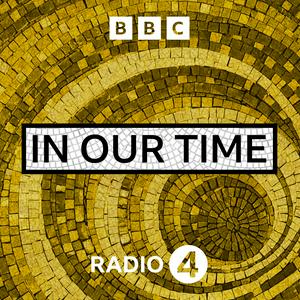The Venetian Empire
Melvyn Bragg and guests discuss the remarkable rise of Venice in the eastern Mediterranean. Unlike other Italian cities of the early medieval period, Venice had not been settled during the Roman Empire. Rather, it was a refuge for those fleeing unrest after the fall of Rome who settled on these boggy islands on a lagoon and developed into a power that ran an empire from mainland Italy, down the Adriatic coast, across the Peloponnese to Crete and Cyprus, past Constantinople and into the Black Sea. This was a city without walls, just one of the surprises for visitors who marvelled at the stability and influence of Venice right up to the 17th Century when the Ottomans, Spain, France and the Hapsburgs were to prove too much especially with trade shifting to the Atlantic.With Maartje van Gelder
Professor in Early Modern History at the University of AmsterdamStephen Bowd
Professor of Early Modern History at the University of EdinburghAndGeorg Christ
Senior Lecturer in Medieval and Early Modern History at the University of ManchesterProducer: Simon TillotsonReading list:Michel Balard and Christian Buchet (eds.), The Sea in History: The Medieval World (Boydell & Brewer, 2017), especially ‘The Naval Power of Venice in the Eastern Mediterranean’ by Ruthy GertwagenStephen D. Bowd, Venice's Most Loyal City: Civic Identity in Renaissance Brescia (Harward University Press, 2010)Frederic Chapin Lane, Venice: A Maritime Republic (Johns Hopkins University Press, 1973)Georg Christ and Franz-Julius Morche (eds.), Cultures of Empire: Rethinking Venetian rule 1400–1700: Essays in Honour of Benjamin Arbel (Brill, 2020), especially ‘Orating Venice's Empire: Politics and Persuasion in Fifteenth Century Funeral Orations’ by Monique O'ConnellEric R. Dursteler, A Companion to Venetian History, 1400-1797 (Brill, 2013), especially ‘Venice's Maritime Empire in the Early Modern Period’ by Benjamin ArbelIain Fenlon, The Ceremonial City: History, Memory and Myth in Renaissance Venice (Yale University Press, 2007)Joanne M. Ferraro, Venice: History of the Floating City (Cambridge University Press, 2012)Maria Fusaro, Political Economies of Empire: The Decline of Venice and the Rise of England 1450-1700 (Cambridge University Press, 2015)Maartje van Gelder, Trading Places: The Netherlandish Merchant Community in Early Modern Venice, 1590-1650 (Brill, 2009)Deborah Howard, The Architectural History of Venice (Yale University Press, 2004)Kristin L. Huffman (ed.), A View of Venice: Portrait of a Renaissance City (Duke University Press, 2024) Peter Humfrey, Venice and the Veneto: Artistic Centers of the Italian Renaissance (Cambridge University Press, 2008)John Jeffries Martin and Dennis Romano (eds.), Venice Reconsidered: The History and Civilization of an Italian City-State, 1297-1797 (Johns Hopkins University Press, 2000)Erin Maglaque, Venice’s Intimate Empire: Family Life and Scholarship in the Renaissance Mediterranean (Cornell University Press, 2018)Michael E Mallett and John Rigby Hale, The Military Organization of a Renaissance State Venice, c.1400 to 1617 (Cambridge University Press, 1984)William Hardy McNeill, Venice: The Hinge of Europe (The University of Chicago Press, 1974)Jan Morris, The Venetian Empire: A Sea Voyage (Faber & Faber, 1980)Monique O'Connell, Men of Empire: Power and Negotiation in Venice’s Maritime State (Johns Hopkins University Press, 2009)Dennis Romano, Venice: The Remarkable History of the Lagoon City (Oxford University Press, 2023)David Rosand, Myths of Venice: The Figuration of a State (University of North Carolina Press, 2001)David Sanderson Chambers, The Imperial Age of Venice, 1380-1580 (Thames and Hudson, 1970) Sandra Toffolo, Describing the City, Describing the State: Representations of Venice and the Venetian Terraferma in the Renaissance (Brill, 2020)In Our Time is a BBC Studios Audio Production
.


